World Water Day
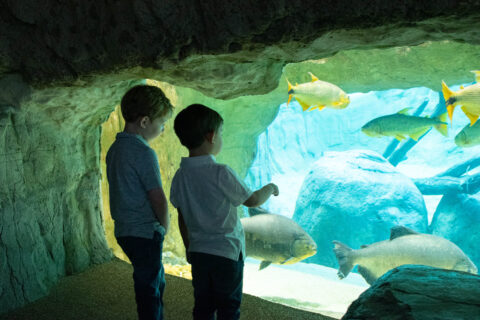 What does water mean to the Houston Zoo? Water is EVERYTHING, and this past winter storm was a stark reminder of how important it is in our everyday lives. Without water it is difficult to prepare animal diets, clean enclosures, do the dishes or bathe (for both animals and people), not to mention difficulty flushing toilets, washing hands, and cooking meals. Of course, water is also vital for drinking and, for some animals — like fish, aquatic invertebrates, and amphibians — for living in. But we cannot provide Zoo animals with just any old water; they require clean, potable water just like we do. And that is where the Houston Zoo Water Quality team enters the picture!
What does water mean to the Houston Zoo? Water is EVERYTHING, and this past winter storm was a stark reminder of how important it is in our everyday lives. Without water it is difficult to prepare animal diets, clean enclosures, do the dishes or bathe (for both animals and people), not to mention difficulty flushing toilets, washing hands, and cooking meals. Of course, water is also vital for drinking and, for some animals — like fish, aquatic invertebrates, and amphibians — for living in. But we cannot provide Zoo animals with just any old water; they require clean, potable water just like we do. And that is where the Houston Zoo Water Quality team enters the picture!
The Houston Zoo Water Quality/LSS team cares for many of the pools that you see in animal enclosures. We also support animal sections by testing water in aquariums, amphibian exhibits, and smaller animal pools to make sure that all animals always have access to clean water. What follows is a brief description of what we do every day, rain or shine!
LSS – Life Support Systems
In the Zoo/Aquarium field, the term “life support” is typically not referring to something you might find in a hospital room… it refers to aquatic life support, engineered systems which keep animals that live underwater alive and happy, and provide clean, drinkable water for terrestrial animals with access to pools. It seems appropriate to use examples from our South America’s Pantanal exhibit, since the Pantanal is the largest wetland on Earth — a network of life-giving waterways covering more than 42 million acres! Here are two general types of LSS in the Pantanal exhibit that we operate and maintain:
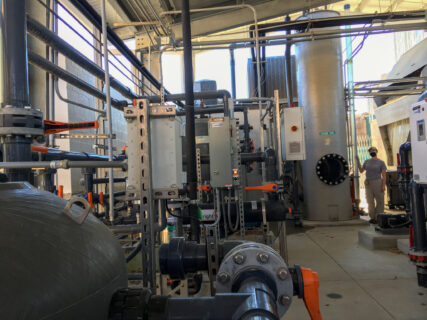
An aquarium life support system is needed for animal waste removal/detoxification, gas exchange, heat exchange, and water flow. The LSS for the Pantanal Aquarium has a sand filter to remove particles, a heating and cooling system, and a 15’ tower that facilitates gas exchange and houses nitrifying bacteria colonies (they are the superstars that detoxify fish waste).
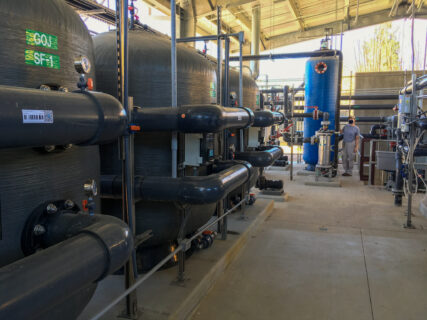
A mammal life support system concentrates on particle removal and disinfection to keep coliform bacteria counts to a minimum. Our Pantanal Giant River Otter LSS has 3 large sand filters, 3 main pumps, Ozone generators plus 2 ozone pumps and an 11’ ozone contact chamber, a boiler for cold days and a chiller for hot days, and a chemical controller to monitor parameters in real time plus automatically dose chlorine and adjust the pH of the water with acid. Whew, that is a lot of equipment! Did I also mention that our team can access system operation information remotely on our phones?
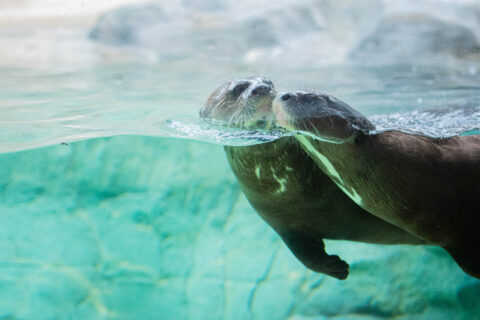
Water Quality
The WQ/LSS team also analyzes water samples Zoo-wide daily. In conjunction with the aquatic LSS, this is how we help make sure that all animals have clean water. We test for multiple parameters including pH, conductivity, hardness (total, magnesium, and calcium), alkalinity, salinity, nitrogenous wastes, phosphate, oxidation/reduction potential, temperature, and in some systems, free and total chlorine, and residual ozone.
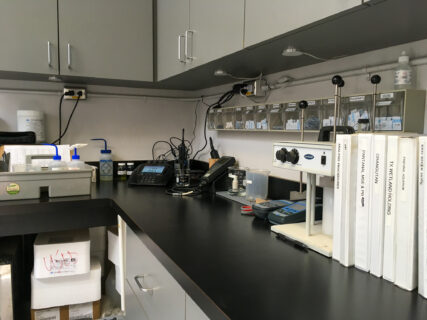
Every system is different, and we use water quality data to tweak our LSS operations to make sure that each is working as efficiently as possible. And finally, we screen for coliform bacteria (including E. coli) and Enterococcus to make sure everything that we do results in safe, healthy environments and thriving animals!
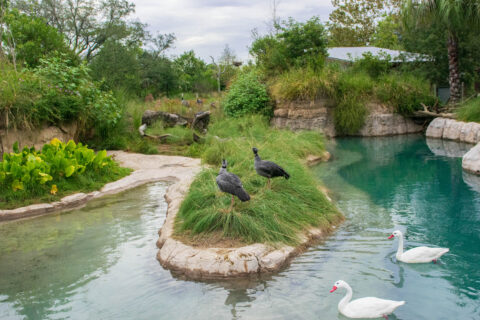
Sometimes we humans take clean water for granted — it is just something that comes out of the tap. But many on this planet are not so lucky. Water in the rivers and bayous support freshwater ecosystems all around the Houston area and are heavily affected by our activities. The animals and plants that live there would be eternally grateful if you did your part to keep trash, chemicals, and other waste out of their homes. The creatures in the ocean would like to thank you, too, since all the water mentioned above empties out into the sea! The health of the planet — including our own — depends on our actions. So the next time you wash your hands, water your garden, or make some iced tea to beat the summer heat, take a moment to think about what water means to YOU!
